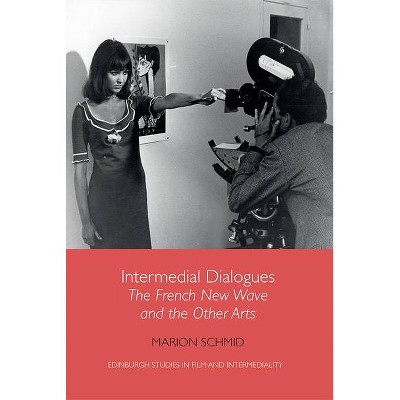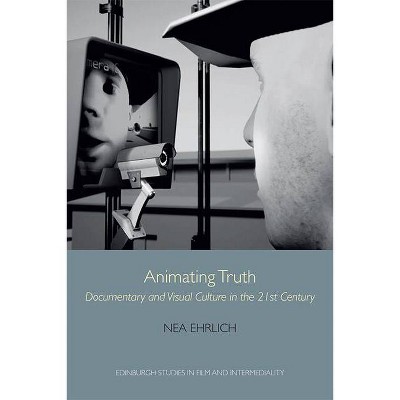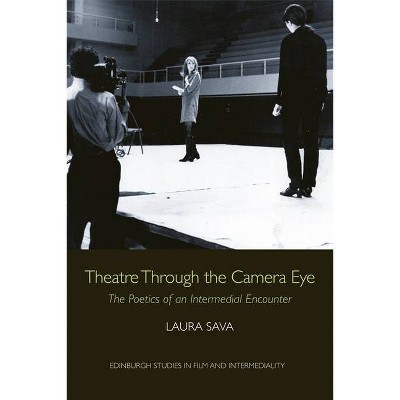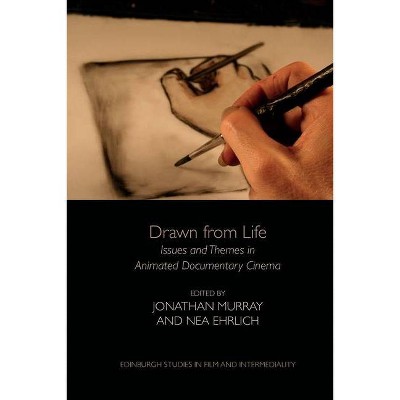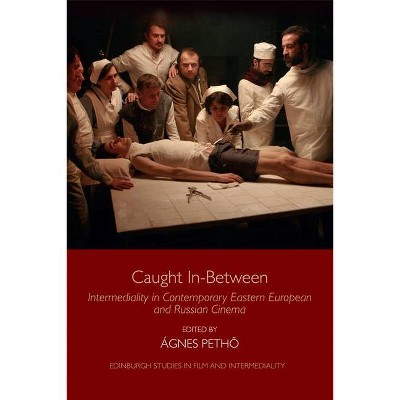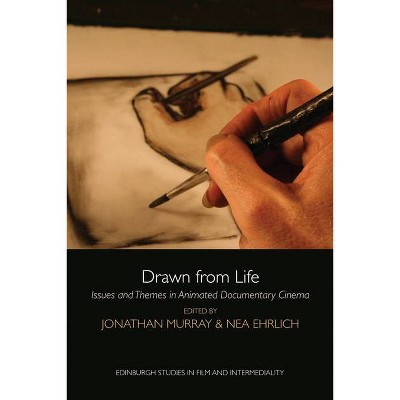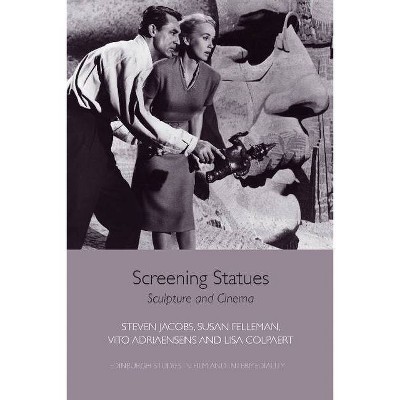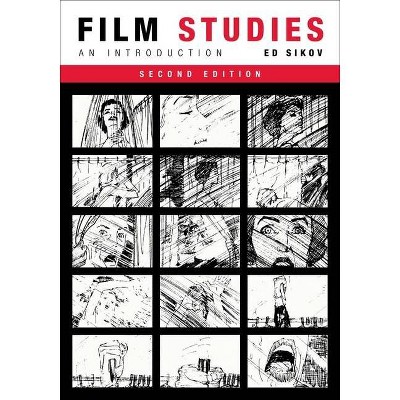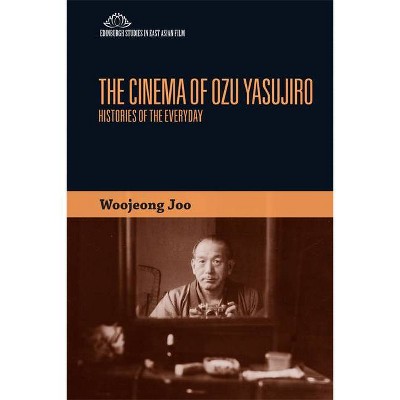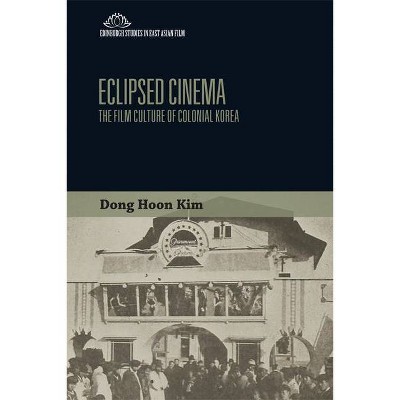The Feel-Bad Film - (Edinburgh Studies in Film and Intermediality) by Nikolaj Lübecker (Paperback)
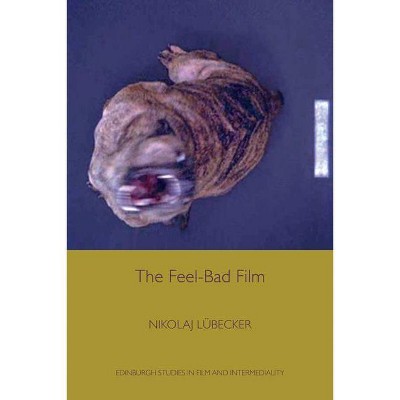
Similar Products
Products of same category from the store
AllProduct info
<p/><br></br><p><b> About the Book </b></p></br></br><p>An analysis of what contemporary directors seek to attain by putting their spectators in a position of strong discomfort</p><p/><br></br><p><b> Book Synopsis </b></p></br></br><p>In recent years some of the best-known European and American art film directors have made films that place the spectator in a position of intense discomfort: <i>Feel-Bad Films</i>. These films systematically manipulate the spectator: sometimes by withholding information from her, sometimes by shocking her, and sometimes by seducing her in order to further disturb her. As a result, they have been criticized for being amoral, nihilistic, politically irresponsible and anti-humanistic.</p><i> <p>The Feel-Bad Film</i> raises three questions to this body of work: How is the feel-bad experience created? What do the directors believe they can achieve in this manner? And how should the films be situated in intellectual history? Through close analysis of films by Lars von Trier, Gus Van Sant, Claire Denis, Michael Haneke, Lucille Hadzihalilovic, Brian de Palma, Bruno Dumont and Harmony Korine, the book argues that feel-bad directors invite the spectator to think of art as an experimental activity with ethical norms that are different from the ones we hope to find outside the movie theatre. Only when given the freedom to take advantage of this asymmetry can film realize its ethical potential.</p><p/><br></br><p><b> From the Back Cover </b></p></br></br>In recent years some of the most innovative European and American directors have made films that place the spectator in a position of intense discomfort. Systematically manipulating the viewer, sometimes by withholding information, sometimes through shock or seduction, these films have often been criticised as amoral, nihilistic, politically irresponsible or anti-humanistic. But how are these unpleasurable viewing experiences created? What do the directors believe they can achieve via this 'feel-bad' experience? How can we situate these films in intellectual history? And why should we watch, study and teach feel-bad films? Answering these questions through the analysis of work by directors such as Lars von Trier, Gus Van Sant, Claire Denis, Michael Haneke, Lucille Hadzihalilovic, Brian de Palma, Bruno Dumont and Harmony Korine, <i>The Feel-Bad Film</i> invites readers to consider cinematic art as an experimental activity with ethical norms that are radically different from the ones we would hope to find outside the movie theatre. Nikolaj Lübecker is Associate Professor in French at the University of Oxford, Fellow of St John's College. He teaches Film Studies and Modern French Literature.<p/><br></br><p><b> Review Quotes </b></p></br></br><br><br>Lübecker's work throughout is illuminating, convincing, and contributes to making 'The Feel-Bad Film' a valuable text, one that helps us to unlock and unpack the complexities of extreme cinema. -- Russell Williams, Los Angeles Review of Books<p></p><br>Nikolaj Lubecker clearly and insightfully analyses many of the most controversial films of recent years by cinematic heavyweights like Michael Haneke, Lars von Trier, Claire Denis and Gus Van Sant. In doing so, he invites his readers to reconsider movies in general: maybe sometimes it's not so bad<br>for a movie to make us feel bad. As we root around for hope at a time when it seems thin on the ground, Lubecker paradoxically conjures hope where there seemed to be none. A unique and ground-breaking work. -- Dr William Brown, University of Roehampton <br><p></p><br>Lubecker's book is one of the most interesting studies of films that provoke feelings of discomfort; the clear, apodictic and jargon-free writing style makes it a pleasure to read while his close readings of the films demonstrate a passion for the objects. The films are not mere illustrators of<br>theory, but dynamic objects, whose ambiguity and provocations force us to theorise. -- Angelos Koutsourakis, The Year's Work in Critical and Cultural Theory <p/><p></p><br>From tragic melodramas to spine-chilling horror, cinema is ripe with kinds of experiences that, under normal circumstances, are undesirable in our perception of reality...Nikolaj Lübecker's The Feel-Bad Film can be seen as a unique intervention to this broader body of work...concerned with how<br>film-makers subvert expectations of spectators, but remain ethically virtuous so as to encourage and invoke a critical response. -- Emre Çaglayan, New Review of Film and Television Studies <br><p></p><br>If you are a programmer who did not show Rick Alverson's recent film Entertainment or Tim Sutton's new Dark Night because you were afraid you would not be able to defend the film to an angry board member, then this book is for you. The book clearly and cogently makes the case why films that<br>challenge our ethical and moral frameworks contribute to a richer culture. I would go so far to also recommend that the book should be sold at festivals, right next to the festival T-shirt, coffee cup and beer cozy. -- Mike S. Ryan, Filmmaker Magazine <br><p></p><br>In this book Nikolaj Lubecker offers an astonishing engagement with contemporary trends in European and avant-garde cinema. He cuts through recent discussions of new French extremism to offer a scintillating, urgent, and original take on the subject. -- Emma Wilson, Corpus Christi College, <br>Cambridge, French Studies <br><p></p><br>Insightful and thought-provoking...The Feel-Bad Film offers a compelling examination of these often disparaged and overlooked films. -- Kristin C. Brunnemer, Pierce College, Historical Journal of Film, Radio and Television<p></p><br>The Feel-Bad Film is a compelling book that expertly argues for the importance of an oft-maligned corpus of films, deftly interweaving film-historical, film-theoretical and philosophical thought into a highly nuanced argument. -- Oliver Kenny, Sciences Po Aix, Film-Philosophy<p></p><br><br><p/><br></br><p><b> About the Author </b></p></br></br><p>Nikolaj Lübecker is Professor of French and Film Studies at St John's College, University of Oxford. His publications focus on contemporary American and European cinema, French literature and critical theory. His most recent book, The Feel-Bad Film (Edinburgh UP, 2015), investigates logics of unpleasure in films by directors such as Claire Denis, Lars von Trier, Gus Van Sant, Bruno Dumont and Harmony Korine.<p>
Price History
Price Archive shows prices from various stores, lets you see history and find the cheapest. There is no actual sale on the website. For all support, inquiry and suggestion messagescommunication@pricearchive.us
